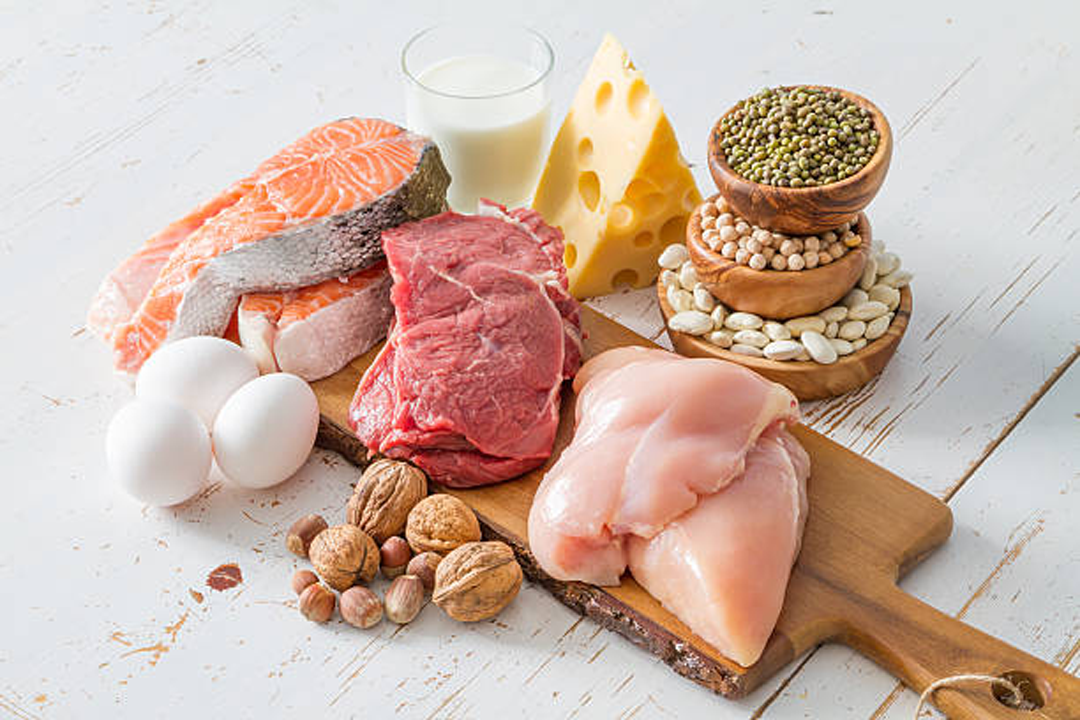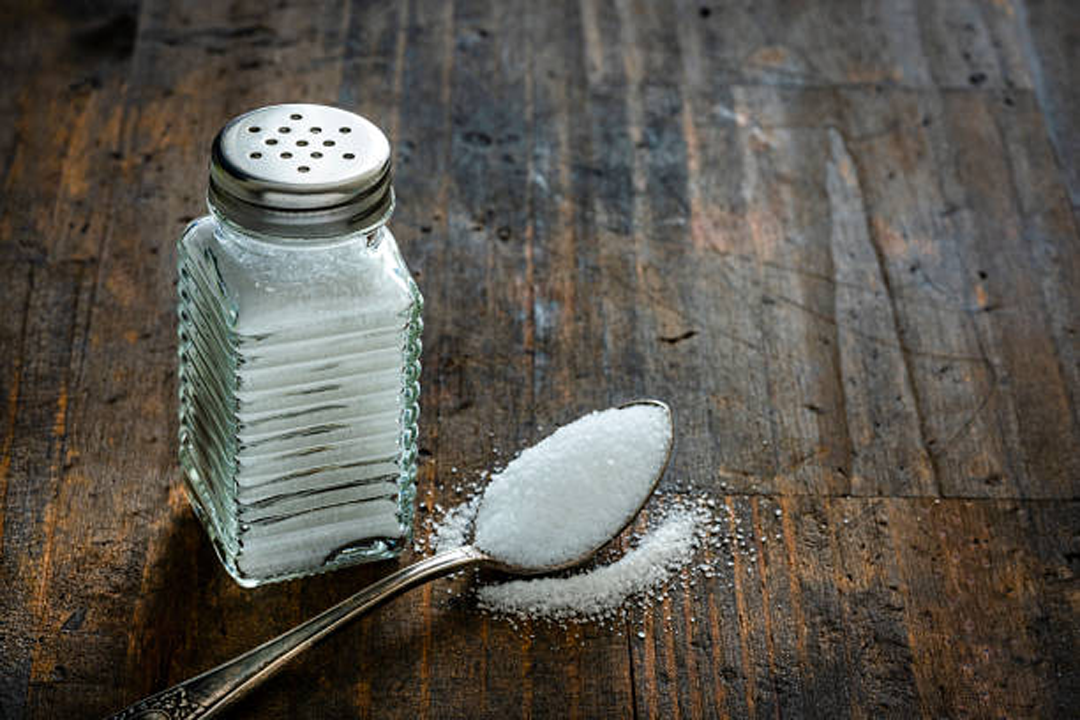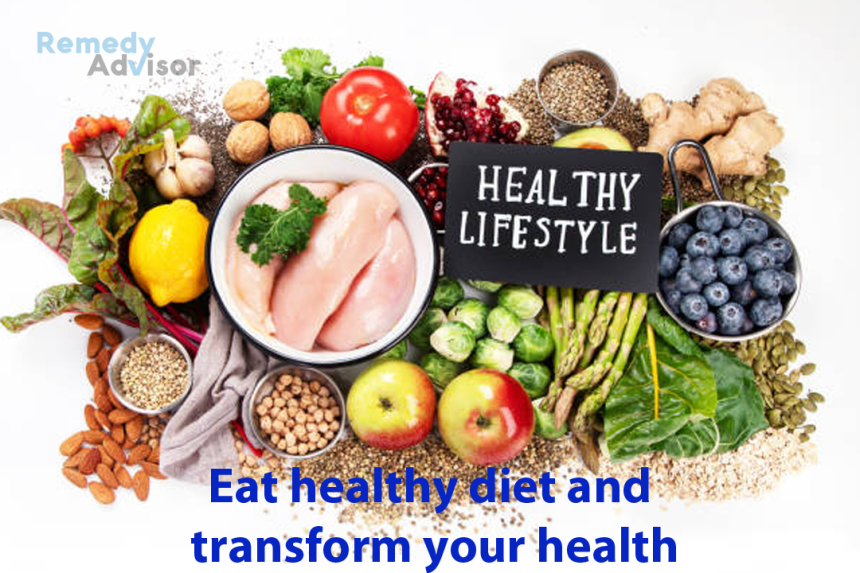Many Americans know that changing what they eat can be good for their health, especially when it comes to lowering their risk of heart disease and cancer. But they might not always know which dietary rules to follow or how to put them into practice in their everyday lives.
In reality, it’s not as hard or restrictive to eat healthy as some people may think. The first rule of a healthy diet is to eat a lot of different foods, since different foods give the body different nutrients.
Most of your calories should come from fruits, vegetables, grains, and legumes, which are high in complex carbohydrates, fiber, vitamins, and minerals and low in fat and cholesterol. The rest of your calories should come from dairy products with low or no fat, lean meats, poultry, and fish.
It’s important to keep a balance between how many calories you eat and how many calories you burn. In other words, you shouldn’t eat more than your body can use, or you’ll gain weight. The more you move around, the more you can eat and still keep this balance.
A healthy diet and regular exercise are the keys to keeping a healthy weight and being healthy for life. Even though some groups may have different dietary needs, the basic rules for eating well are the same for everyone, no matter what age.
Twelve keys to eating right
You don’t have to eat bland or boring foods to keep your diet healthy. Instead, you can think of healthy eating as a chance to try out new foods, and it’s fine to treat yourself once in a while as long as your diet sticks to these basic rules.
1. Eat a varied diet high in fruits, vegetable, and grains.
For a healthy diet, it’s best to eat low-fat or fat-free dairy products, nuts, and small amounts of meat, poultry, and fish every now and then. This is called the semi-vegetarian diet, but a vegetarian diet can also be very healthy. Most of your daily calories should come from complex carbs like grains, beans, potatoes, and other starches.
To get the 20 to 30 grams of fiber you need each day, try to eat at least five servings of vegetables and fruits and six servings or more of grains or legumes. Whole grains are especially healthy because they are full of vitamins and minerals that our bodies need. You can make a diet that is mostly made up of vegetarian foods by using the government’s food pyramid. Keep in mind that a serving size is pretty small, like one slice of bread or one piece of fruit, half a cup of cooked rice, pasta, or vegetables, or three ounces of lean meat, poultry, or fish. Of course, it’s fine to eat more than one serving of the same kind of food at one meal.
2. Keep your intake of calories from fat at or below 30 percent of your total daily calories.
Some experts say that you shouldn’t eat more than 25% of your daily calories from fat. To do this, choose lean meats, chicken breast without the skin, fish, and low-fat or fat-free dairy products. Also, you should eat less butter, margarine, mayonnaise, salad dressings, fried foods, and chips, which are all high in saturated fats. It’s important to remember that packaged foods like cookies, cakes, crackers, and TV dinners, as well as fast foods like hamburgers and pizza, often have a lot of hidden fats and calories.
It’s important to remember that fats have more than twice as many calories per gram (nine) as protein or carbs, like sugar (four). So, reducing the amount of fat you eat can help you control the number of calories you eat and stay at a healthy weight.
3. Limit your intake of saturated fat to less than 10 percent of total calories.
Choose oils like canola, olive, corn, or peanut oil that have a lot of monounsaturated and polyunsaturated fats. But you should only use these oils in small amounts. Saturated fats, which mostly come from animal products like fatty meats, whole milk, butter, and cheese, and Trans fats, which are found in hydrogenated fats in margarine and other processed foods, can cause the body to make more cholesterol. Because of this, it’s important to eat as little saturated and hydrogenated fat as possible.
4. Keep your cholesterol intake at 300 milligrams or less per day.
Cholesterol is only found in foods that come from animals, like meat, poultry, dairy, and egg yolks. One egg yolk contains about 210 milligrams of cholesterol, which is a big chunk of the amount you should eat every day. On the other hand, a three-ounce serving of meat, poultry, or fish has about 60 milligrams of cholesterol, which is 20 to 25 milligrams per ounce. It’s important to remember that foods with a lot of cholesterol don’t always have a lot of fat.
5. Maintain a moderate protein intake about 12 percent of your total daily calories

Choose low-fat sources of protein, like skim milk and nonfat yogurt, which are also good sources of calcium and other important nutrients. Legumes are a great way to get protein from plants. The typical American diet has too much protein, especially from sources like meat.
6. Include green, orange, and yellow fruits and vegetables.
Cantaloupe, carrots, broccoli and citrus fruits are all high in antioxidant nutrients like vitamins C and E and carotenoids. Free radicals are highly reactive molecules that are made by normal cellular processes and by things in the environment like tobacco smoke and radiation. These antioxidants work at the molecular level by neutralizing free radicals. Free radicals can damage DNA, cell walls, and other parts of cells, which can lead to long-term damage and illness. Antioxidants stop this damage from happening by getting rid of free radicals before they can do damage.
Many types of cancer may be less likely to happen if you eat foods that are high in antioxidants. Vitamin E may also lower the risk of heart disease, and vitamins C and E seem to protect against cataracts. Antioxidants may even slow down some of the effects of getting older, though scientists are still trying to figure out how important they really are.
It is better to get antioxidants from food than from supplements. Still, some scientists say that vitamin E supplements might be needed for a big change to happen.
7. Consume sugary foods only in moderation.
Tooth decay is the only bad thing that sugar does by itself. But sugary foods often have a lot of calories and not much nutrition. High-sugar foods like cakes, pies, and cookies also tend to be high in fat.
8. Limit your sodium intake to no more than 2,400 milligrams per day.

This is about the same amount of sodium as a little more than a teaspoon of salt. Use less salt when cooking and at the table, and stay away from foods like canned soups, cheeses, and pickles that are high in salt. Always look at the labels to see if a food contains sodium. Some people can have high blood pressure because they are sensitive to salt, which is about 10% of the population. Also, if you eat too much salt, your body may hold on to water.
9. Get enough calcium in your diet.
Regular exercise helps build strong bones and keeps bone density and strength over the course of a person’s life. This is especially important for women because their bone density drops a lot during menopause.
10. Get your vitamins and minerals chiefly from foods, not from supplements.
Dietary supplements can’t replace a healthy diet, which gives you all the essential nutrients and other good things you need. In fact, scientists are still finding out how foods protect health, and these substances can’t be made into pills. Food also has a synergistic effect that makes the body’s use of many nutrients more efficient. For example, vitamin C helps the body take in iron, and vitamin E helps the body use vitamin K. Beta carotene is just one of many helpful carotenoids found in food, and it may not even be the most important one. Scientists think that each of these things does something different in the body, and that many of them work together.
Even though supplements can’t make up for a bad diet, taking certain vitamins and minerals in the right amounts as part of a well-balanced diet may be good for your health.
11. Drink enough fluids.
Every day, the human body loses about two to three quarts of fluid through sweating, breathing out moisture, and going to the bathroom. To make up for this, you should drink at least eight 8-ounce glasses of water every day. In addition to drinking water, you can get some of the fluids you need by eating solid foods, especially fruits and vegetables. Also, juices, milk, and soups are just as good as water for replenishing the body’s fluids.
12. If you drink alcohol, do so in moderation.
Experts say that men shouldn’t drink more than two drinks per day, while women shouldn’t drink more than one drink per day. A standard drink is 12 ounces of beer, 4 ounces of wine, or 1.5 ounces of liquor or spirits that are 80 proofs. If you drink too much alcohol, it can hurt your health. Alcoholic drinks can also add a lot of calories to your diet (seven calories per gram), but they don’t give you any vitamins or minerals that you need.







